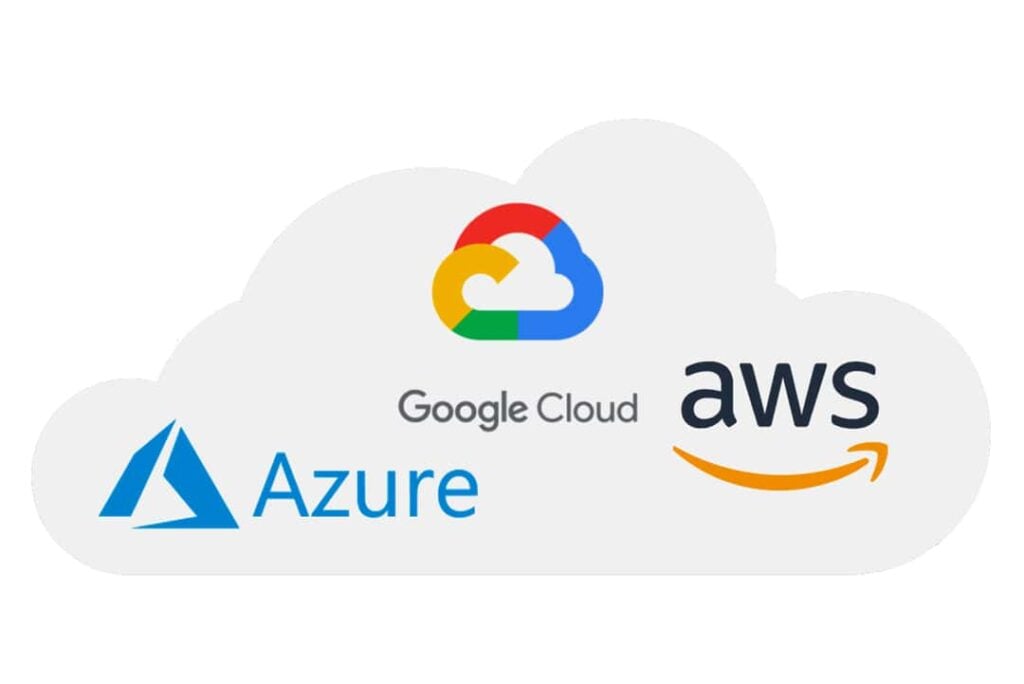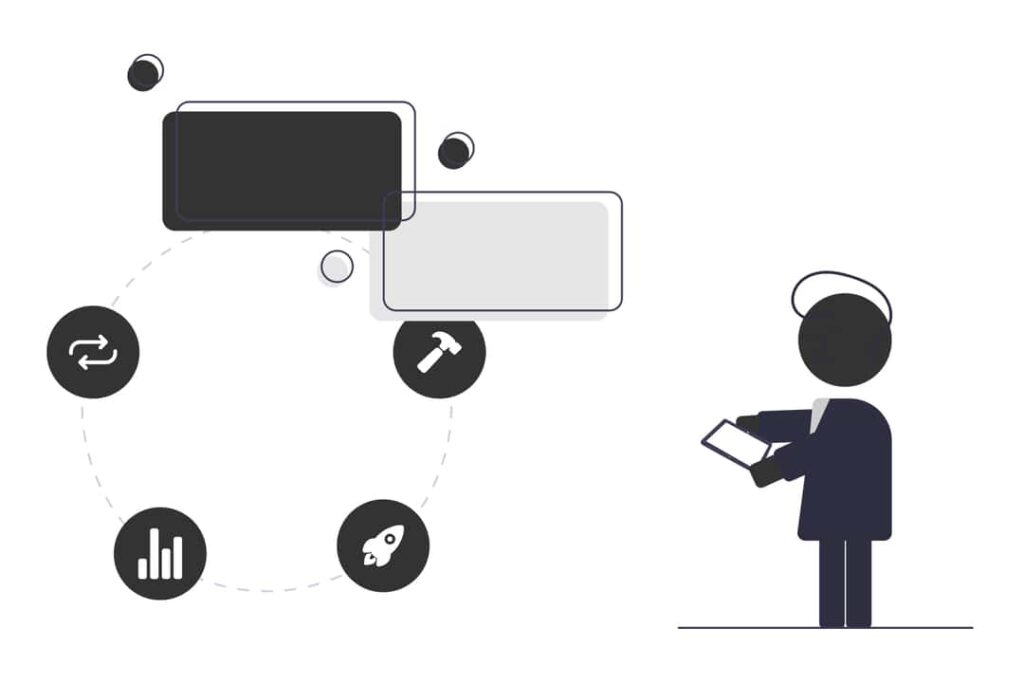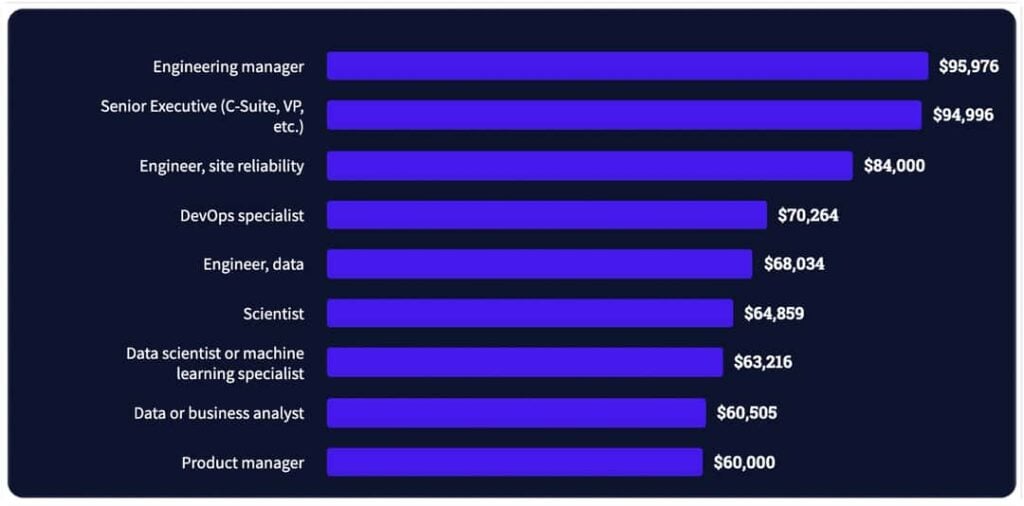How to hire a DevOps engineer to super-charge your software infrastructure
A DevOp is a general term for an IT professional that is proficient in key skills in relation to Developer-Operations.
What this means in practically day-to-day is that DevOps are active in 4 main areas of an IT application business:
- Maintaining CI/CD pipelines: CI/CD (continuous integration / continuous deployment) is the practice of continuously updating and deploying an application in a seamless and automated manner.
- Automation tools: Closely related to the previous point, a DevOps developer is often required to develop and maintain automation tasks for an application, in an effort to boost efficiency and save time in every-day tasks.
- Security and monitoring: A DevOps role is closely related to content delivery, so a strong understanding of security is required to keep codebases and internal systems private and inaccessible.
- Application and infrastructure planning: A skill that has dramatically increased in demand in recent times due to containerisation, reliance on cloud platforms and other micro-economic factors.
These areas are difficult to summarise in one word; they pertain to a broad range of skills that differ from one company to the next. For this reason, the DevOps term is now used for such a role.
It is a common practice to place “Ops” at the end of a particular department, such as PeopleOps or SecurityOps.
DevOps engineers are often flexible in what they can contribute to a task, due to the range of skills they possess. DevOps engineers often accommodate senior positions at a company due to the wealth of experience and seasoned skills required to smoothly take on the role.
For this reason, a DevOps salary is often above an average engineering salary. Talent.com clearly shows that now in 2022, a DevOp is paid a lot more on average than a software engineer / software developer role.
Table of Contents

Why do you need to hire DevOps Engineer(s)?
So now we know what a DevOps engineer is, why would you need one for your company?
There are specific tasks that a DevOp engineer, or a DevOps team, can take on to complement the efforts of engineers focused on building an application, in an effort to increase efficiency.
DevOps skills can complement a development team, and promote the technical skills of the entire organisation.
Ability to enhance internal systems
The smarter, more efficient, easier to understand and use, and overall effectiveness of internal systems are, the more efficiently software developers can manage and continue building an application.
A DevOp can further streamline in-house software by creating new command-line utilities for automating specific tasks – think data processing, cleaning and refactoring and code optimisations (removing dead code, bundling, transpiling).
Job requirements may be specific to a particular cloud provider. For example, An “Azure DevOps” specialist would be able to more smoothly integrate services than DevOps from other platforms.

Investigate and resolve technical issues
What can be a time consuming and stressful task for app developers already consumed in developing app features, a DevOp engineer can tackle technical issues with a codebase as a priority. A common practice today is to manage technical issues on GitHub utilising Issues, Milestones and Project features.
In fact, GitHub plays a dominant role today in the CI/CD process mentioned earlier, which can automatically audit code every time a new update is committed to a repository.

Build testing and analysis tools
Testing tools are now a well-supported part of most development pipelines, whether we look at Rust test functions, the React Profiler or Jest framework for JavaScript, or the Robot Framework for Python, there are many off-the-shelf tools and frameworks available for testing purposes.
It is often the DevOp engineer’s responsibility to adopt such tools in order to troubleshoot system errors. Testing tools can further be adopted to every stage in a development pipeline, and be automated, to keep bugs to a minimum.
Deploy updates and fixes via a technical support role
In addition to the above, a DevOps engineer can act as a general support role for a team, or the go-to person when something goes wrong.
It will then be the DevOp’s responsibility to determine the root cause of the issue, provide a fix, and to update any testing procedures to reflect any edge cases that creep through the pipeline.

DevOps Engineer Job Description Requirements
The job description for your DevOps requirements should be written by a CTO (chief operating officer) or a senior technical role within your organisation.
A senior DevOps engineer can either be integrated into an existing DevOps team, or as an individual. Again, the CTO or tech lead with knowledge of the software engineering and deployment process will have the knowledge of the overall software development effort to determine the DevOps methodology required.
Such people will be knowledgeable of the company’s overall technical bottlenecks, inefficiencies, and where DevOps engineers are most needed.
With this in mind, a job description can be structured with the following sections.
1. Must be proficient in [specific framework, programming language, tools]
Clearly identify the particular technologies your organisation currently uses to form the technical expectations of the potential DevOps engineer.
2. Build, test, deploy and maintain applications in [environments]
Identify your specific needs at each stage of your development pipeline, and highlight specific environments (operating system) and cloud platforms your infrastructure depends on.

3. Automate and optimise processes with [DevOps tools]
List the processes that require automation, and the tools required to do the job. A competent DevOp will likely identify additional tools or processes to achieve the same task which can be explored in the interview process.
4. Work closely with [development teams] to improve CI/CD
Identify specific development teams that the DevOp will be communicating with the most, as well as particular CI/CD agendas.
5. Troubleshoot and resolve issues in all stages of the development pipeline
Highlight the various stages of development that the DevOp will be a part of, and mention how issues are tracked and resolved. This commonly falls in the source control / GitHub department.
Check out the LinkedIn DevOps job description template for further inspiration.

Critical Skills of a Great DevOps Engineer
There are some skills that hiring managers will be looking out for with DevOps roles. These are listed here for additional clarity, and must be present when hiring the best DevOps engineers.
Proficiency with git and git workflows. This is vital for team communication, managing code updates and versioning, and merging updates.
Good knowledge of high level programming languages. If the candidate has worked with other programming languages not used within your company, it shouldn’t be concluded the candidate is unsuitable for the role. Given the candidate is interested and willing to learn additional languages on the job, the DevOp will have the capability to quickly become fluent.
Working knowledge of databases and SQL. SQL is the number 4 most popular technology period (according to Stack Overflow 2021 survey), and is likely to be used somewhere along a software stack. Nevertheless, an experienced DevOps engineer should be comfortable working with data via SQL or document-based databases.
Strong problem-solving and excellent communication skills (soft skills). The role of a DevOp naturally demands good communication skills. Resolving issues within a codebase, identifying improvements of a deployment pipeline, and understanding the product roadmap at a deep level all require clear and concise communication between DevOps and app developers.
We’ll now cover some tips to ensure the right DevOps specialist is hired.

Tips for Hiring DevOps Engineers
Find highly motivated and passionate individuals
Find candidates who are deeply interested in the problems you are trying to solve. Passionate individuals are much more likely to see a project through, and perform to a higher standard than those who see a task as a burden instead.
Focus on your specific needs
As we’ve already touched on, DevOps is a buzzword, and does not represent any particular skill set.
It is therefore critical for in-house employees with a technical background to determine the particular role of the DevOp position they require.
Check a candidate’s educational background

As well as a CV and portfolio of recent work, check the candidate’s educational background. Active endeavours in higher education will demonstrate a desire to gain knowledge, and a strong interest in a particular project.
Candidates with a master degree in computer science will have a well-rounded knowledge of the IT field, and make an ideal DevOps candidate.
In addition to degree or doctoral credentials, check if the candidate utilises platforms such as Coursera and Udemy, and to which skills they are interested in improving.
Understand your requirements on a deep level
Hiring managers must attract the correct candidate for the job, so ensure that they have detailed specifications of the DevOp role you require.
If you do not understand the requirements yourself, consult more technically-minded in-house employees to gain insight on how a DevOps engineer can improve your software infrastructure.
Source candidates from a range of platforms
Top DevOps engineers are in high demand, with DevOps specialists boasting higher salaries than most other development roles:

Finding DevOps can be done on a range of platforms. To learn more about particular outsourcing strategies, as well as platforms for sourcing potential DevOp teams, check out Iglu’s accompanying guide on How to Outsource Software Development.
Appeal to candidate beyond salary and benefits
Discuss a candidate’s long term goals and aspirations and reasons to why they are opting for a path as a DevOp. There may be opportunities to offer the candidate additional responsibilities to further complement their chosen career path.

Hire DevOps Engineers with Iglu
With over 10 years of experience in the industry, Iglu has a track record of attracting talented digital specialists from all over the world. Our Enterprise-grade employees range from senior talents with decades of experience to junior employees for more affordable solutions.
Not only are we experts with the mainstream tech stacks, but we also have specialists in the biggest cloud providers including AWS, Azure, Google Cloud Platform and Digital Ocean.
See our comprehensive list of services for more information and we will look forward to working with you.

Summary
Hiring a top DevOps engineer can be a challenging task; doing so requires a deep understanding in your organisation’s technical requirements, and issues that are preventing your software infrastructure from becoming more streamlined and more capable
Hiring a DevOps engineer with a matching skill set to your needs can expedite the evolution of your software, and gain benefits like reduced bugs, more automation, and a more secure development pipeline.






